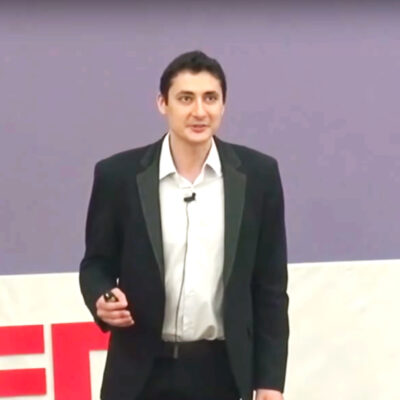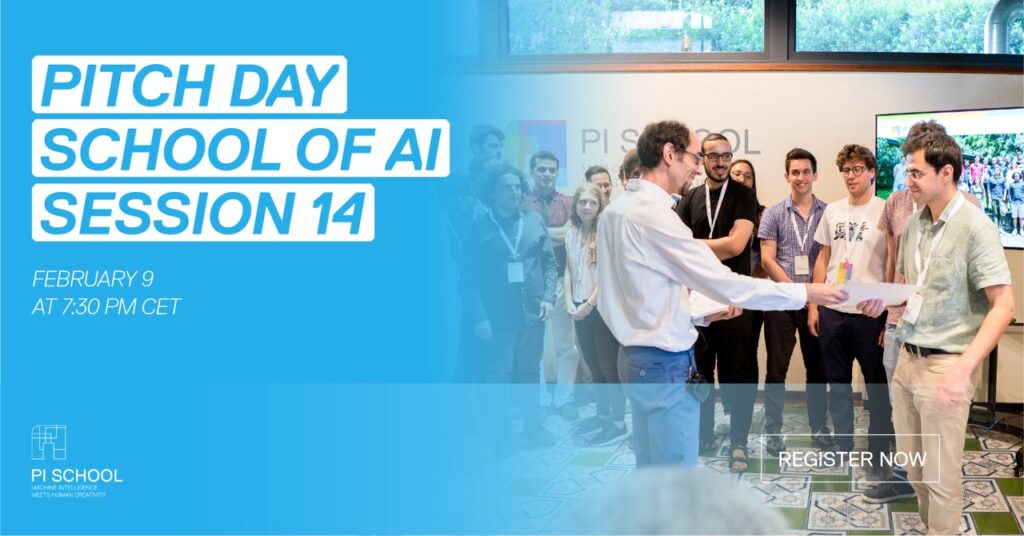Event
Pitch Day – Pi School of AI Session 14
Join us for Pitch Day!
The event showcases the innovative solutions developed by our School of AI fellows in collaboration with industry leaders. Key highlights include:
- AI-enhanced stock management revolutionising retail.
- AI technology transforming medical literature analysis.
- Cutting-edge AI applications in transcript restructuring and API integration.
These projects represent the pinnacle of AI’s practical applications and its promising future in multiple sectors. Don’t miss the chance to witness firsthand the latest technological breakthroughs and their exciting business prospects.
-
Revolutionising Retail with AI-Enhanced Stock Management
Discover how cutting-edge AI technology is transforming retail inventory management. This groundbreaking project leverages advanced AI algorithms to optimise stock levels, ensuring maximum sales and minimal surplus. The solution promises to be a game-changer in supply chain efficiency, setting a new benchmark in integrating tech innovation with practical business strategies.
Fellows
Prakhar Rathi, Hari Prasad, Valerio Ferdinando Cala.
-
LibraryMed: Effective Medical Literature Analysis with AI
LibraryMed project, developed with the assistance from Pi School of AI fellows, represents a significant leap in medical research and education. Integrating the latest AI technology, LibraryMed aims to streamline the analysis of research documents, offering quick and reliable insights. The expected outcome will save valuable time and provide the medical community with trustworthy information, crucial for education and practice.
Fellows
Mabel Ubong, Arkaprava Majumdar, Kuntal Pal.
-
Structured Dialogue: AI-Powered Transcript Transformation
This challenge focuses on developing an AI solution (LLM 1) to transform raw, conversational-style verbatim transcripts into a more structured and organised format. The AI will reorder the content, remove speech disfluencies, and tentatively resolve acronyms, thereby streamlining the process of converting unstructured text data into a rearranged transcript. The goal is to facilitate the automation of developing efficient and effective procedural guidelines.
Fellows
Andrea Gasparini, Ahmad Mustafa Anis.
-
API Builder: From Text to Tasks
In this challenge, Pi School fellows are working to develop an AI system (LLM 2) that translates structured transcripts into functional API calls. It involves training the AI to interpret the rearranged transcript and construct a series of API calls, effectively converting text into features and procedures to create an industry framework. This innovative approach leverages AI to bridge the gap between textual data and actionable features, significantly enhancing the efficiency in developing systematic guides.
Fellows
Lorenzo Bagnol, Raima Islam.
Mentor
-

Adrian Buzatu
Adrian Buzatu has played a leading role in the particle physics data analysis that led to the discovery of the Higgs boson decaying to bottom quarks in a five-year PhD at Fermilab in Chicago, US and a seven-year postdoctoral research at CERN in Geneva, Switzerland. The Higgs boson is a building block of the Universe that gives mass to other particles, without which the Universe as we know it would not exist. The theorists that predicted the particle received the Nobel Prize in 2023. Adrian has been building complex data products at scale at startups in Berlin for five years, based on sensor data processing, machine learning forecasts for geospatial data and time series, and optimisation with constraints. Keen to business needs, with a process from business KPIs (revenue, cost, profit margins) to defining operations KPIs (asset management, shift efficiency, logistics, supply chain) to ML KPIs (precision, recall, RMSE). In short, Adrian builds data-driven, actionable insights.
